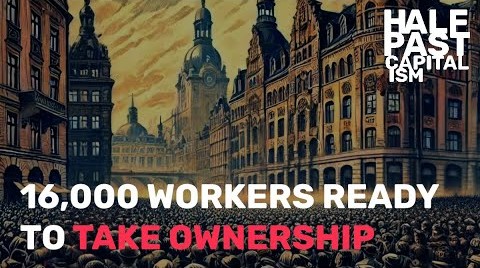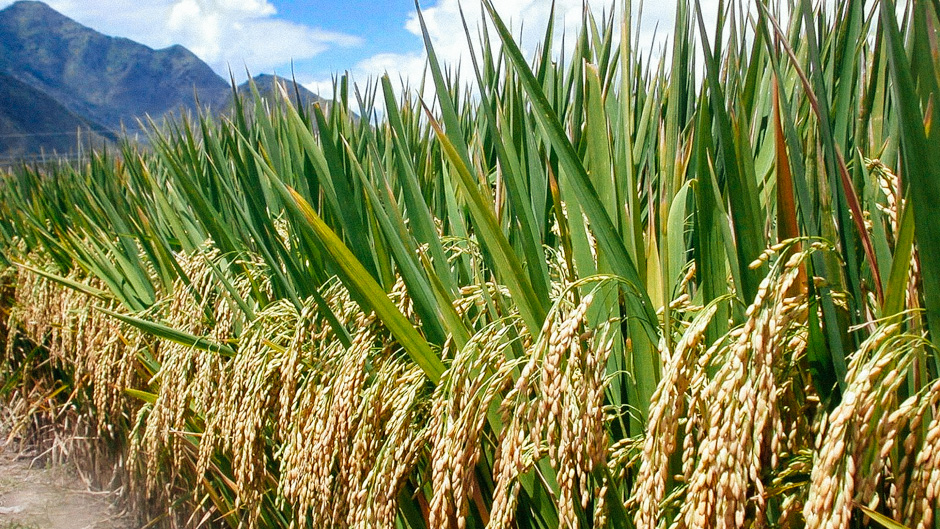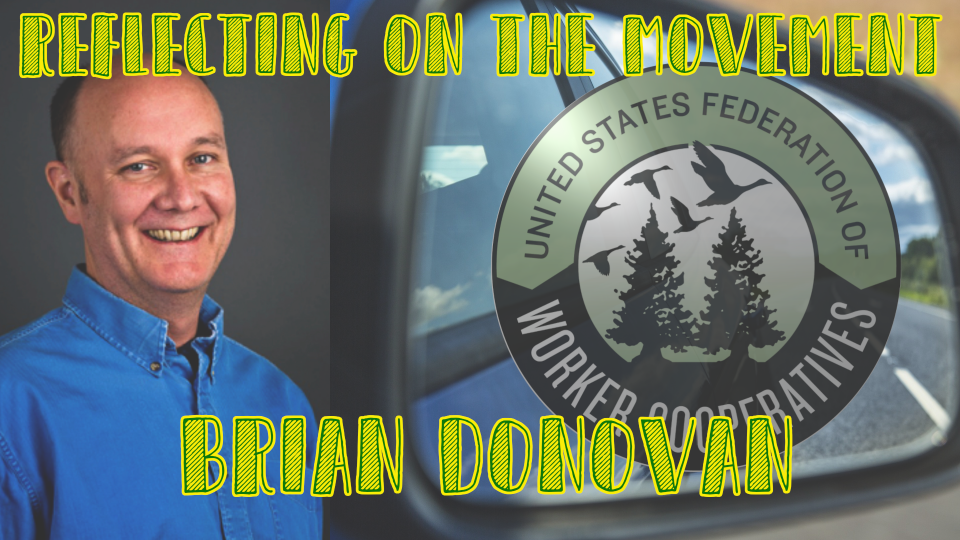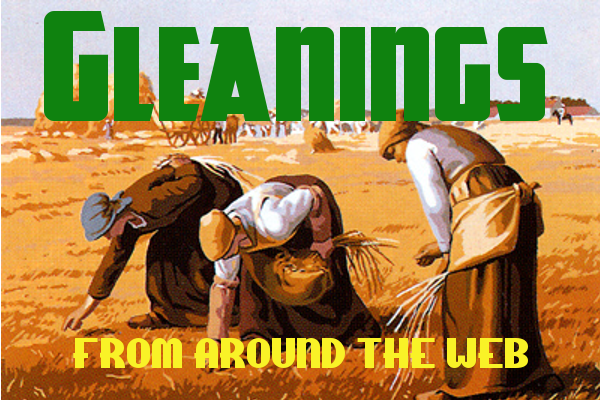This week, Dru Oja Jay talks with Shanon Ikebe about some new archival materials that have recently come to light regarding Sweden's Meidner-Hedborg Plan (MHP), that would have seen the majority of the economy converted to worker ownership over a period of 30 years. The rejection of the plan by ostensibly socialist political parties points to some fundamental contradictions that exist between worker-led movements and the hierarchical institutions that are supposed to support them.
Then, Zhanping Hu and Qian Forrest Zhang examine why and how a few of China's many farmer cooperatives have managed to maintain themselves and thrive in an environment of cut-throat capitalist competition, while the vast majority have eventually folded and failed to deliver on their promises of improved livelihoods for their members. The secret ingredient, they argue, is vertical integration and the creation of alternative, local, food systems that can take crops from field to plate without leaving the cooperative ecosystem.
Finally, we share long time co-op organizer and advocate Brian Donovan's reflections on the last couple decades of worker co-op development in the US.
Meidner-ing at Night
by Half Past Capitalism
The party leaders rejected the MHP, since they embraced the capitalist “mixed economy” upon which they had built the welfare state. Social Democratic militants strongly supported the Meidner-Hedborg Plan, but could not organize for it in defiance of the leadership, because of the weakness of autonomous structure and culture to empower an organized internal dissent. Furthermore, certain institutional features of the plan, as well as the ambiguous, polysemic character of the discourse of “economic democracy”, made it challenging to concretely articulate how the society and workers’ lives would be transformed under labor control of firms.
Alternative Agrifood Systems & The Economic Sustainability of Farmers' Cooperatives
by Zhanping Hu & Qian Forrest Zhang
Using a sample of 70 farmers' cooperatives across the country and comparing three “extreme cases”—cooperatives that are both authentic and economically successful—with the rest, this study argues that participation in alternative agrifood systems is the key to their success. In the Chinese context, smallholders are deeply integrated into the conventional agrifood system and have gained technology and market access through the mediation of private enterprises and public institutions, leaving little space for cooperatives. Only in alternative agrifood systems, which prioritize product quality and authenticity and value closer relationships between producers and consumers, do cooperatives, as a unique governance institution based on trust, have advantages. Our case analysis shows how cooperatives brought smallholders economic gains and achieved economic sustainability through shifting to ecologically sustainable farming and building alternative distributive networks. This finding adds a new dimension to our understanding of the relationship between smallholder cooperatives and sustainable development: in capitalist agrifood systems, ecologically sustainable agrifood alternatives provide the basis for cooperatives' social and economic sustainability.
Decoding the differences between the Social Solidarity Economy (ESS), Social Entrepreneurship and related initiatives
RIPESS — July 9 12:30h Geneva time / Online conversion ENG-FR-CAST. Given the significant space that social entrepreneurship has taken up in recent years and the lack of conceptual clarity and values surrounding the current ESS ecosystem, it was necessary to provide a good basis for understanding the difference between social and solidarity economy and social entrepreneurship...
What We Don't Talk about When We Talk about Work
Solidarity Hall — What I rarely hear is the testimony of worker-owners to the fact that they jointly own a workplace which quite simply brings them joy and satisfaction. This is not merely one more feature of worker coops—in some ways, I think it’s almost the whole point. We are here talking about the real-world possibility of creating something which sounds very utopian: liberatory workplaces! A contradiction in terms, many would claim!...
The Crucial Role of Farmer Cooperatives and Why Active Participation Matters
Farm Bureau — Service Cooperatives: These cooperatives offer various services to farmers, including transportation, storage and financial services. Cooperative banks and credit unions specifically serve the financial needs of farmers, providing loans and credit at favorable terms. The Farm Credit system functions as a service cooperative in this manner. Supply cooperatives like CHS and Growmark also offer marketing services for members, which places them under multiple categories...
‘We survive together’: The communal kitchens fighting famine in Khartoum
The New Humanitarian — Communal kitchens are assisting hundreds of thousands of people in Sudan’s embattled capital, Khartoum, providing regular meals as well as social and emotional support amid a deepening famine that international aid groups are failing to tackle. Run by neighbourhood-based mutual aid groups called emergency response rooms, the kitchens are struggling with crippling funding gaps, security threats, and communications and electricity blackouts, volunteers told The New Humanitarian...
New on our YouTube Channel
Why We Need Local and National Co-op Networks (feat. Jessica Gordon-Nembhard)
Reddit Q&A #4 (feat. John Luther of Limeleaf Worker Collective)
Like what you find on GEO?
Make a Donation Today!
Your tax-deductible contribution ensures that GEO can continue to provide independent grassroots content about the cooperative and solidarity economy movements.
Got something to say?
Let us know. Send your comments, suggestions, rants and article submissions to editors@geo.coop.
Follow us on Social Media
Mastodon: social.coop/@GEO_Collective
FB: facebook.com/GrassrootsEconomicOrganizing/
Twitter: twitter.com/@GEO_Collective
Our mailing address is:
Grassroots Economic Organizing
P.O. Box 115
Riverdale MD 20738-0115





